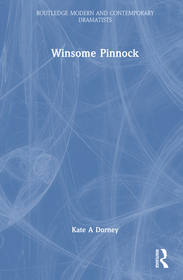
Time and Causality in Early Modern Drama
Plotting Revenge
Series: Routledge Studies in Renaissance Literature and Culture;
- Publisher's listprice GBP 42.99
-
20 538 Ft (19 560 Ft + 5% VAT)
The price is estimated because at the time of ordering we do not know what conversion rates will apply to HUF / product currency when the book arrives. In case HUF is weaker, the price increases slightly, in case HUF is stronger, the price goes lower slightly.
- Discount 20% (cc. 4 108 Ft off)
- Discounted price 16 430 Ft (15 648 Ft + 5% VAT)
Subcribe now and take benefit of a favourable price.
Subscribe
20 538 Ft

Availability
Not yet published.
Why don't you give exact delivery time?
Delivery time is estimated on our previous experiences. We give estimations only, because we order from outside Hungary, and the delivery time mainly depends on how quickly the publisher supplies the book. Faster or slower deliveries both happen, but we do our best to supply as quickly as possible.
Product details:
- Edition number 1
- Publisher Routledge
- Date of Publication 28 November 2025
- ISBN 9781032724331
- Binding Paperback
- No. of pages226 pages
- Size 229x152 mm
- Language English
- Illustrations 2 Illustrations, black & white; 2 Halftones, black & white 700
Categories
Short description:
The opening of the first theatre in 1579 created an interplay between the innovations of producers and the perceptions of orally-conditioned audiences. Located in the context of relations between the academy and Indigenous communities, this work questions our abilities, habituated to literacy, to understand oral systems.
MoreLong description:
The opening of the first commercial theatre in London in 1579 initiated a pattern of development that radically reshaped representation. The competition among theatres required the constant production of new works, creating an interplay between the innovations of producers and the rapidly changing perceptions of audiences. The result was a process of incremental change that redefined perceptions of time, action, and identity. Aristotle in the Poetics contrasted a similar set of formal developments to the earlier system of the epics, which, like many predecessors of early modern drama, had emerged from largely oral traditions. Located in the context of contemporary relations between the academy and Indigenous communities, Time and Causality in Early Modern Drama: Plotting Revenge traces these developments through changes in the revenge tragedy form and questions our abilities, habituated to literacy, to fully understand or appreciate the complexity and operations of oral systems.
The Open Access version of this book, available at http://www.taylorfrancis.com, has been made available under a Creative Commons [Attribution-Non Commercial-No Derivatives (CC-BY-NC-ND)] 4.0 license.
MoreTable of Contents:
Acknowledgements
Introduction
Part I, A Theory of Tragedy
1 Nietzsche, Aristotle, and a Theory of Tragedy
Part II, Precursors To Tragedy
2 Epics and Narratives of Inclusion
3 “The Syllables of Time”: Drama and Time in the Middle Ages
Part III, Tragedy, Time, and Revenge
4 Marlowe’s “Tragic Glass” and the Decline of Analogy
5 The Spanish Tragedy and Revenge
6 Titus Andronicus
7 Hamlet
8 Othello
9 Decadent Tragedy
Part IV, Reflections on Process
10 Epilogue and Conclusions
Bibliography
Index








